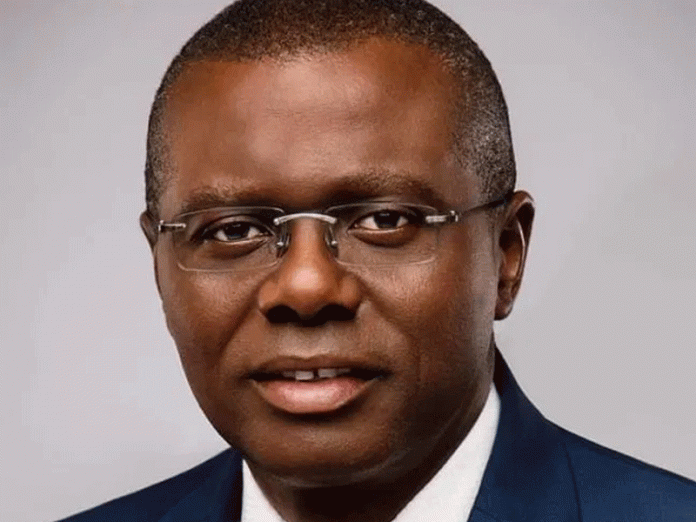The Lagos State Government on Wednesday inaugurated fifteen 40-passenger Omibus ferries locally produced in Nigeria.
The Governor of Lagos State, Babajide Sanwo-Olu, said during the inauguration that the launch of the omnibus ferries was about the reengineering of the state’s public transportation system.
“In our THEMES agenda, traffic management and transportation falls directly in the remit of what we are doing here today. It is only when we have an efficient, effective and reliable public transportation system that the economy of the city can grow and people can see economic value and have predictable journeys.
“Water transport reduces time and cost of movement and length of time it takes to commune from one point to the other. This is the power of ensuring economy and businesses can grow and thrive,” he said.
Sanwo-Olu added that the ferries were supposed to be 25 in number, but given the urgency of where we are and the fact that there was need to demonstrate that backward integration was possible in Nigeria, so we were only able to deliver 15.
According to him, the last ferries launched in this facility two years ago were all imported ferries, about 22 of them. I am happy the ferries we are handing over today are all done locally to international standard, just that the engines are foreign.
He urged private ferry operators to listen to their regulators, stick to regulated time for movement so as to avoid fatalities on the waterway.
“The National Inland Waterways Authority and the Lagos State Waterways Authority (LASWA) must continue to enforce those rules, no matter who it concerns, once the time set to stop movement is reached, they cannot allow anybody to move on the waterways,” he said.
Also, Mr Oluwaseun Osiyemi, Commissioner of Transport, said the launch of the new Omibus ferries, was a testament to their collective commitment to enhancing the quality of life for all Lagos residents.
“This initiative is a bold step towards achieving a more efficient, sustainable, and accessible transportation system, reflecting our unwavering dedication to progress and innovation.
“The Omibus Ferries project is not just about improving transportation; it is about transforming the way we live and move. It is about connecting communities, fostering economic growth, and reducing the stress and congestion that often characterise our daily commutes.
“These state-of-the-art ferries have modern amenities and safety features, ensuring passengers have a comfortable and secure journey, and heralding a new era of convenience and efficiency in Lagos,” he said.
He added that the Omibus Ferries symbolised more than just a mode of transport; it represented the state’s collective vision for a vibrant, resilient, and forward-looking Lagos.
Mr Olabode Makanjuola, Chief Executive Officer, Caverton Offshore Support Group, said that the commissioned Omibus ferries symbolised its unwavering commitment to quality, safety and innovation.
Makanjuola noted that the ferries certified by both Bureau Veritas and the Standard Organisation of Nigeria were equipped with all essential safety features to ensure a secure and comfortable travel experience for commuters.
“This event signifies a momentous achievement for Caverton Marine and a significant step forward for the entire water transportation in Lagos.
“Caverton has been into logistics services in oil and gas, providing marine service and today, we are honoured to extend our expertise to tackle one of the most pressing challenges facing Lagosians, chronic traffic congestion,” he said.
Earlier, Mr Oluwadamilola Emmanuel, General Manager, Lagos State Waterways Authority (LASWA), noted that the unveiling of Nigerian-made modern ferries was a testament to the dedicated efforts of the Lagos State Government in developing water transport in Lagos State.
He noted that the Omibus ferry project was not just about adding more vessels; but about enhancing our capacity to serve the growing number of commuters who rely on water transport daily.
He added that these unique modern boats are equipped with revolutionary technology to ensure all commuters’ safety, comfort, and convenience.
“They represent our commitment to sustainability, resilience, and innovation, featuring eco-friendly designs that minimise environmental impact.
“Our goal is to provide a viable alternative mode of transportation, thereby contributing to the economic growth and ecological sustainability of Lagos State,” he said.
The LASWA boss said that its commitment to sustainable development had garnered international recognition and support, with partnerships with esteemed foreign entities such as the Future Cities Nigeria Project of the UK Government, the UK NIAF, and the ongoing Waterways Investment.
“Others are the Development of the Environment (WIDE-LAG, OMI-EKO Project) jointly sponsored by the European Union, European Investment Bank, French Development Agency, and the Lagos State Government,” he said.
He noted that through safety awareness strategies, LASWA had significantly increased ridership figures and reduced waterway accidents.
He pointed out that the launch of the Omi-Bus ferries was the launch of a promise of better service, greater efficiency, and an enhanced commuting experience.
(NAN)


